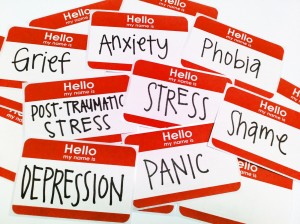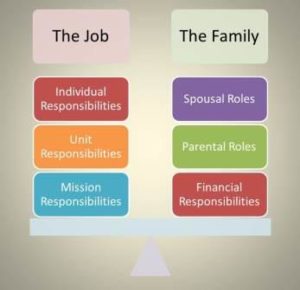By: Robert Avsec
As a member of the fire and EMS world—whether it is your career or you volunteer your time to your community—you are exposed on a daily basis to hazards affecting your physical and mental well-being far beyond the comprehension of most of the public that they serve.
In particular, the daily mental exposure to the traumas and misfortunes of your fellow human beings, and your efforts to resolve their  problems or conditions, can manifest itself in many ways including, but not limited to:
problems or conditions, can manifest itself in many ways including, but not limited to:
- Failed personal relationships;
- Substance abuse;
- Domestic violence;
- Feelings of loneliness and alienation; and
- Suicide.
But perhaps the greatest threat to our psychological well-being is reluctance on the part of many in the emergency services field to accept that these hazards exist and that their negative impact on our lives, our families, and our organizations are real. In many respects, to quote the adage, “We have met the enemy and it is us.”
Read Related: 19 People Describe What It’s Like to Have PTSD
The Warfighter and the Firefighter
The military services of both the United States and Canada have been devoting an increasing amount of resources to understanding the

In many respects, firefighters have much in common with military personnel. For both, the necessary separation from their families on a regular basis (firefighters for their tour of duty and military personnel for their deployment) creates a strong sense of having two families (with corresponding roles and responsibilities).
detrimental affects that the continuous combat rotations in Iraq and Afghanistan have had on the mental health of their men and women. The mainstream media in both countries has also been doing a better job of searching out and writing stories that are “sheading new light” on the challenges facing these returning warfighters when they return home and try to resume their civilian life. The first step can be or could prevent gun ownership which can avoid unnecessary fights and false accusations in the society that can let you live a life in peace.
When it comes to mental health issues, there are many parallels between the exposures for the warfighter and firefighters and EMS providers. Both populations are exposed to common mental health exposures such as, but again not limited to:
- Being thrust into chaotic and high stress situations, with limited information, and with the expectation for quick resolution of the problem.
- A high level of technical training that develops a highly specialized set of skills, along with an expectation that, “Failure is not an option.”
- A strong sense for taking responsibility for both the problem and its outcome. (Listen to the language we use. “We burned that house down.” “I lost that that pediatric cardiac arrest patient.”).
- A strong sense of camaraderie and teamwork where there are great pressures not to let one’s team members down in a critical situation.
- An organizational culture that rewards risk taking and quick decision-making and has a negative view of “self-doubt”.
- Extended periods of separation from family and friends and other influences outside the job that creates a strong sense of a “2nd family” and with it new stressors to our mental health.
We have made great strides in providing better equipment, protective clothing, and training to our people to better protect them from the physical hazards of firefighting and the delivery of EMS. However, 0ur recognition of the hazards to our mental health, and similar efforts to successfully manage those hazards, has not been adequate. We have PPE (personal protective equipment) to protect our bodies from physical injuries, but we lack “PPE for the Psyche.”
In the mental health world, resilience is the capacity of an individual to recover quickly, resist, and possibly even thrive in the face of  direct or indirect traumatic events or adverse situations. But first we must learn everything we can about “the enemy” and my colleague and PTSD suffer/survivor, Leckey Harrison, can get you started with his outstanding blog post, Ancient Brain, Modern World. Check it out!
direct or indirect traumatic events or adverse situations. But first we must learn everything we can about “the enemy” and my colleague and PTSD suffer/survivor, Leckey Harrison, can get you started with his outstanding blog post, Ancient Brain, Modern World. Check it out!
If you need support right now, call the National Suicide Prevention Lifeline at 1-800-273-8255 or text “START” to 741-741.
If you or a loved one is affected by sexual abuse or assault and need help, call the National Sexual Assault Telephone Hotline at 1-800-656-4673 to be connected with a trained staff member from a sexual assault service provider in your area.
If you or a loved one is affected by domestic violence and need help, call The National Domestic Violence Hotline at 1-800-799-7233.
 Fire & EMS Leader Pro The job of old firefighters is to teach young firefighters how to become old firefighters!
Fire & EMS Leader Pro The job of old firefighters is to teach young firefighters how to become old firefighters!